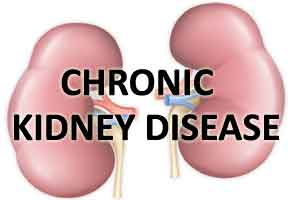- Home
- Editorial
- News
- Practice Guidelines
- Anesthesiology Guidelines
- Cancer Guidelines
- Cardiac Sciences Guidelines
- Critical Care Guidelines
- Dentistry Guidelines
- Dermatology Guidelines
- Diabetes and Endo Guidelines
- Diagnostics Guidelines
- ENT Guidelines
- Featured Practice Guidelines
- Gastroenterology Guidelines
- Geriatrics Guidelines
- Medicine Guidelines
- Nephrology Guidelines
- Neurosciences Guidelines
- Obs and Gynae Guidelines
- Ophthalmology Guidelines
- Orthopaedics Guidelines
- Paediatrics Guidelines
- Psychiatry Guidelines
- Pulmonology Guidelines
- Radiology Guidelines
- Surgery Guidelines
- Urology Guidelines
Phosphate binders to prevent complications of chronic kidney disease

Adults with chronic kidney disease(CKD) G5D treated with dialysis, sevelamer may lower all-cause mortality compared to calcium-based binders and incur less treatment-related hypercalcemia, while no clinically important benefits of any phosphate binder on cardiovascular death, myocardial infarction, stroke, fracture or coronary artery calcification was found, reports a systematic literature review published in Cochrane.
People with chronic kidney disease (CKD) are unable to remove phosphate from the body via the kidneys. As a result, phosphate levels in the blood and in body tissues increase as kidney function decreases. This leads to the development of calcium and phosphates deposits in blood vessels and other tissues along with damage to the skeleton, worsening of kidney failure and an increased risk of cardiovascular disease, bone pain, fractures, and death.
Ruospo M and associates conducted a systematic review to to assess the benefits and harms of phosphate binders for people with CKD with particular reference to relevant biochemical end-points, musculoskeletal and cardiovascular morbidity, hospitalisation, and death.
The investigators included all clinical studies in which people with CKD were randomly given different phosphate binders for at least eight weeks.
The authors' identifed104 studies of phosphate binders that included 13,744 people. Some studies gave treatment for only eight weeks while some studies treated participants for three years. People in the studies had a range of kidney function, and many were on dialysis.
Read Also:Women with gestational diabetes may be at risk for chronic kidney disease
The study found that Sevelamer(phosphate binding drug) treatment may have decreased death for those patients given this medication when taken instead of calcium. The phosphate binders probably caused constipation.
No strong evidence was found whether phosphate binders reduced heart complications, stroke, bone pain, or calcification of blood vessels. In patients with CKD G2 to G5, the effects of sevelamer, lanthanum, and iron-based phosphate binders on cardiovascular, vascular calcification, and bone outcomes compared to placebo or usual care, are also uncertain and they may incur constipation, while iron-based binders may lead to diarrhea.
“We are not very sure whether specific phosphate binders are beneficial to patients with CKD. There is a possibility that sevelamer may prevent death compared to calcium-based binders, but we don't know whether this may be caused by an increased risk of calcium-based binders, a lower risk with sevelamer treatment, or the possibility that both may be true. Patients need to know that it is not certain whether phosphate binders help to prevent complications of kidney disease, but sevelamer may be preferred to calcium binders,”write the authors.
Patients with an eGFR of <15 ml/min/1.73m2, or who require some form of dialysis, have CKD stage G5which is often referred to as End-Stage Renal Failure.
For reference log on to

Disclaimer: This site is primarily intended for healthcare professionals. Any content/information on this website does not replace the advice of medical and/or health professionals and should not be construed as medical/diagnostic advice/endorsement or prescription. Use of this site is subject to our terms of use, privacy policy, advertisement policy. © 2020 Minerva Medical Treatment Pvt Ltd